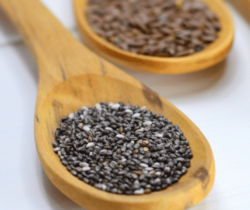Heart disease is a serious health concern in Australia. Fortunately, many of the factors that increase a person’s risk of developing heart disease are modifiable—we have the power to change and control them.
One example of a modifiable risk factor is the food we eat. Following a healthy, balanced diet, alongside regular physical activity, is beneficial to our heart health.
In this article, we’ll outline the types of foods that make up a heart-friendly diet and give you some tips for maintaining a healthy heart through diet and eating habits.
Understanding heart health
The term ‘heart health’ refers to the wellbeing of the cardiovascular system (the heart, blood vessels and blood), and when this system is working well every part of our body is supplied with the right amount of blood whenever it is needed. By contrast, the term ‘heart disease’ refers to several types of conditions that adversely affect the functioning of the cardiovascular system. These are:
- Cardiovascular disease—the most common cardiovascular disease is coronary heart disease (or CHD). CHD is the result of atherosclerosis, a build-up of fatty substances in the coronary arteries that causes them to become narrowed or blocked. This leads to less blood and oxygen reaching the heart muscle, which can result in heart attack. Other cardiovascular diseases include stroke, where the blood supply to part of the brain is affected by a blood clot. CHD is the leading single cause of disease-related death in Australia.
- Arrhythmias—these are abnormal heart rhythms that result from faults in the heart’s electrical system. They cause the heartbeat to become too fast, too slow or irregular.
- Heart failure—this is where the heart muscle is damaged and does not work properly.
- Structural heart disease—these are conditions that affect the heart’s valves, walls, chambers or muscles.
Heart-healthy foods
As what we eat on a daily basis can impact our body size, our cholesterol levels and blood pressure (which in turn affect our heart health), consuming a heart-healthy diet is very important.
So, what foods constitute a heart-healthy diet? As we shall see, the Heart Foundation recommends a variety of foods that include vegetables, fruits and whole grains. Healthy sources of protein such as fish, seafood, legumes, nuts and seeds are also recommended, as are smaller amounts of eggs and lean poultry (e.g. chicken breast).
Balanced diets for heart health
A balanced diet is one that meets all the body’s daily nutritional requirements without exceeding its energy requirements (in nutritional terms, energy is something which is released from food to provide fuel for the body). Energy requirements vary with age, gender, body size and activity levels.
To improve heart health, the most effective approach is to make healthier eating choices across the whole diet. There are a variety of eating patterns that are thought to support this. These include:
1. The Mediterranean diet
This diet is rich in fruits, vegetables, legumes, whole grains, lean proteins and healthy fats that come from fatty fish and plant sources (particularly olive oils or nuts). One big advantage of the Mediterranean diet is that people tend to find it more appealing than low-fat diets, which makes it easier to stick to in the long term.
2. The DASH diet
The DASH (Dietary Approaches to Stop Hypertension) diet was created specifically to help people manage their blood pressure through diet alone. This eating pattern includes fruits, vegetables, whole grains and lean protein while restricting added sugar, saturated fat and sodium (salt) intake. The DASH plan encourages high-fibre foods like beans, nuts and seeds as an important source of healthy monounsaturated and polyunsaturated fats, magnesium potassium and protein.
3. Plant-based diets
These focus on foods primarily from plants including fruits, vegetables, nuts, seeds, oils, whole grains, legumes, and beans. Such diets have been linked to improved heart health and can lower the risk of living with obesity and high blood pressure. They are rich in fibre and antioxidants, which support the reduction of inflammation.
What foods are best for heart-healthy diets?
In developing its Healthy Eating Principles, the Heart Foundation identified the common features in heart-healthy eating patterns.
A heart-healthy diet includes a variety of nutrient-dense foods that promote cardiovascular well-being. Here are some foods that are generally considered beneficial for heart health:
- Plenty of vegetables, fruits and whole grain cereals. The fibre, potassium and other micro-nutrients contained in fruits and vegetables have been shown to reduce the risk of high blood pressure and cholesterol. There is also evidence of a significant association between eating whole grain foods and reduced risk of cardiovascular disease. Diets high in fibre from whole grains have been linked to reduced so-called ‘bad’ (LDL) cholesterol levels.
- A variety of healthy protein sources, especially fish and seafood, legumes (such as beans and lentils), nuts and seeds. Smaller amounts of eggs and lean poultry can also be included. If you wish to include red meat, make sure that it’s lean and limit it to between one and three times a week.
- Unflavoured, unsweetened milk, yoghurt and cheese are good sources of protein and calcium.
4. Healthy fat choices such as nuts, seeds, avocados and olive oil. Healthier fats include foods and oils rich in mono-unsaturated and polyunsaturated (omega-3 and omega-6) fat. These fats have been associated with reductions in LDL cholesterol and increases in ‘good’ (HDL) cholesterol, reducing the risk of heart disease. (You can read about dietary methods for reducing harmful cholesterol here.)
The Heart Foundation’s Healthy Eating Principles recommend that herbs and spices are used to flavour foods, instead of salt.
You can find a range of recipes containing heart-healthy foods here.
Nutrients and heart health
A balanced, nutritious diet will provide you with a combination of vitamins, minerals, antioxidants, protein, carbohydrates, fibre and healthy fat, all of which are beneficial for heart health.
Lifestyle factors for a healthy heart
In addition to diet, other lifestyle factors can influence heart health. These factors include how much physical activity you do, whether or not you smoke, your cholesterol levels, blood pressure management, body weight management, sleep quality, stress management and social support.
Tips for maintaining a heart-healthy diet
Tips to help you stick to a heart-healthy diet include:
- Connect emotionally with the change you want to make: for example, if your main reason for following a heart-healthy diet is to have more quality time with your family, this provides a strong reason not to give up.
- Have accountability structures: telling people that you’re going to adopt a new diet and informing them of your progress can help you keep going.
- Make sustainable action easy: it can be helpful to start with small changes to increase your chance of achieving consistent wins that will provide you with the motivation to keep going.
Remember, change is a process and it takes time. Be patient with yourself.
Maintaining a heart-healthy diet is an important preventative measure against heart disease. By eating a variety of healthy foods from different food groups and making lifestyle changes such as increasing physical activity levels and quitting smoking, we can significantly reduce our risk of developing heart disease.
But successfully making long-term healthy lifestyle changes is not always easy. This is where prevention programs such as Life! can help.
How the Life! program can help you
Life! is a free healthy lifestyle program that helps you improve your eating habits, increase your physical activity and manage stress. It will help you reduce your risk of developing diabetes, heart disease and stroke.
Life! is run by experienced health professionals, including dietitians and exercise physiologists, who guide and support you to make healthy lifestyle changes.
The program includes 7 sessions delivered over a 12-month period. You can choose from a group course or our telephone health coaching service. Learn more about the program here.
You can also check your eligibility for the program by taking a quick online test here.
Sources
Cholesterol – healthy eating tips – Better Health Channel
Coronary heart disease and atherosclerosis – healthdirect
How to lower your blood pressure
Food & nutrition Overview – Australian Institute of Health and Welfare
How to lower your blood pressure – healthdirect
Diet and heart disease risk – Better Health Channel
Heart Attack – Symptoms, Signs, Complications and Treatments – healthdirect
Heart Attack Symptoms: Men Vs Women – healthdirect
Heart Disease – Know Your Risk – Better Health Channel
Nutrition – NHMRC
Living with a heart condition – Better Health Channel
Nutrition position statement – Heart Foundation
Staying healthy when you have a heart condition – healthdirect





